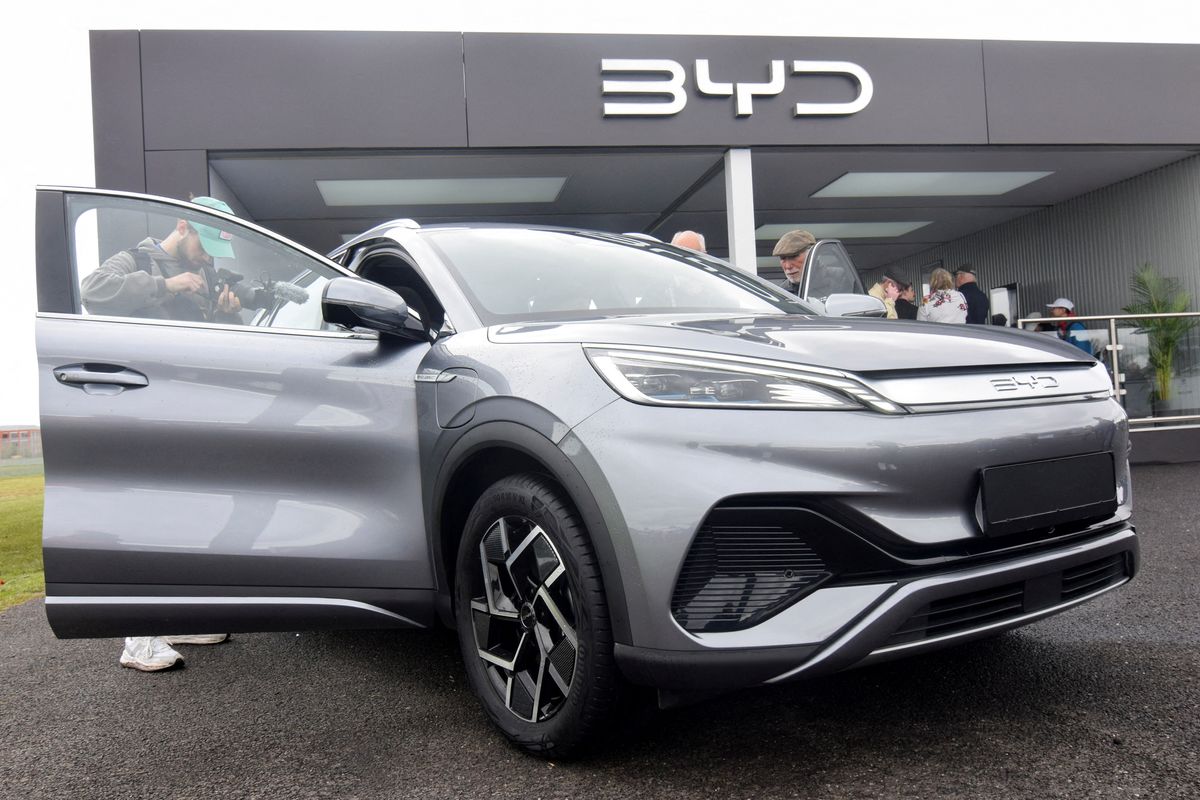BYD, China's EV powerhouse, climbs the battery market ranks
BYD just made a killer move in the EV industry.

A few minutes every morning is all you need.
Stay up to date on the world's Headlines and Human Stories. It's fun, it's factual, it's fluff-free.
The backstory: BYD, which is backed by famed investor Warren Buffet, has been making waves in the electric vehicle (EV) industry big time. This Shenzhen-based company isn't just making EVs but is also a major player in the EV battery game.
What's the secret sauce? Well, BYD has gone all-in on developing top-notch battery tech, specifically focusing on lithium ion batteries, which are commonly used in EVs. BYD even set up its own battery production facilities. That means the company handles the entire manufacturing process in-house, from producing the cells to assembling the packs. This vertical integration gives it more control over the quality, cost and steady supply of batteries. It also supplies its batteries to big foreign players like Ford and Toyota.
More recently: Last year, BYD had an absolute blockbuster year. It sold around 1.86 million vehicles, which is more than what it sold in the past four years combined. Meanwhile, China's new energy vehicle retail sales went through the roof, nearly doubling to over US$5 million. Guess who had a slice of that pie? Yep, BYD, which claimed a huge 30% of those sales. BYD kicked things up a notch in April, snatching the crown from Volkswagen and becoming China's top-selling car brand in the first quarter.
The development: BYD just made a killer move in the EV industry. It officially became the world's second-largest producer of EV batteries, leaving LG Energy Solution in the dust. It's a big deal because BYD is already a heavyweight in EV manufacturing, and now it's right behind its domestic rival, Contemporary Amperex Technology (CATL).
Together, these powerhouses have captured more than half (52%, to be precise) of the global EV battery market, as per SNE Research. The report reveals that BYD installed 29.4 gigawatt hours (GWh) of batteries from January to April – a 108.3% increase from last year. So BYD now holds a solid 16.1% market share.
But LG is also making some noise. It pumped out 25.7 GWh of batteries, a hefty 49.3% growth, and grabbed a 14.1% slice of the global market. And let's not forget about CATL, which supplied a massive 65.6 GWh of batteries. That's a 55.6% increase compared to last year, and it's now capturing a strong 35.9% global market share.
Key comments:
“We see the Chinese as the main competitor, not GM or Toyota,” said Ford Motor CEO Jim Farley during the Morgan Stanley Sustainable Finance Summit in May. “I like BYD. Totally vertically integrated, aggressive … very, very impressive company. And they were always committed to electric.”
"BYD is very, very strong," said Oliver Blume, CEO of Volkswagen, during an event at the Shanghai auto show in April. "In the end, not everything is about volume. We want to have a successful business, and it is more important to be the best international group here in China."
"Loss making independent (new energy vehicle) producers are likely to resist further price competitions, but we believe profitable market leaders such as Tesla and BYD still have the pricing flexibility to balance demand and supply - and both companies will continue to expand production capacity aggressively in 2023," said Fitch Ratings analysts said in a note last month.




Comments ()